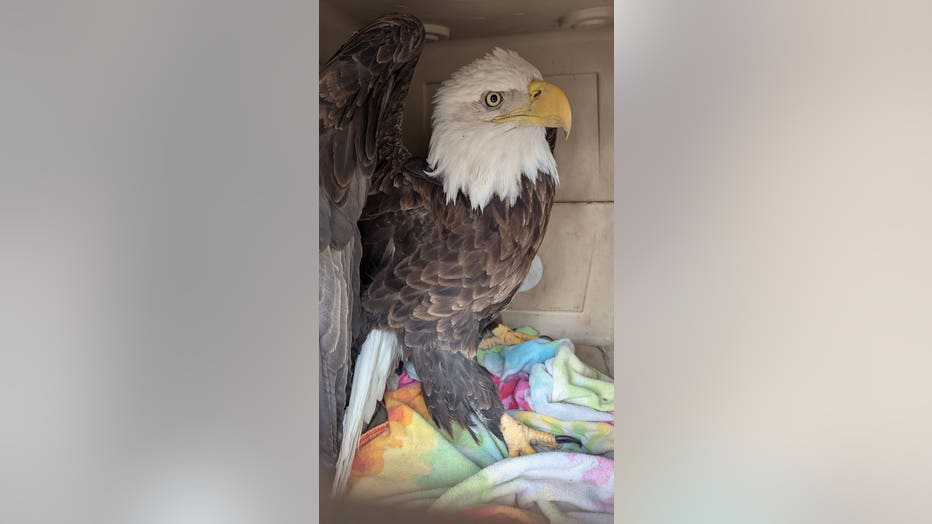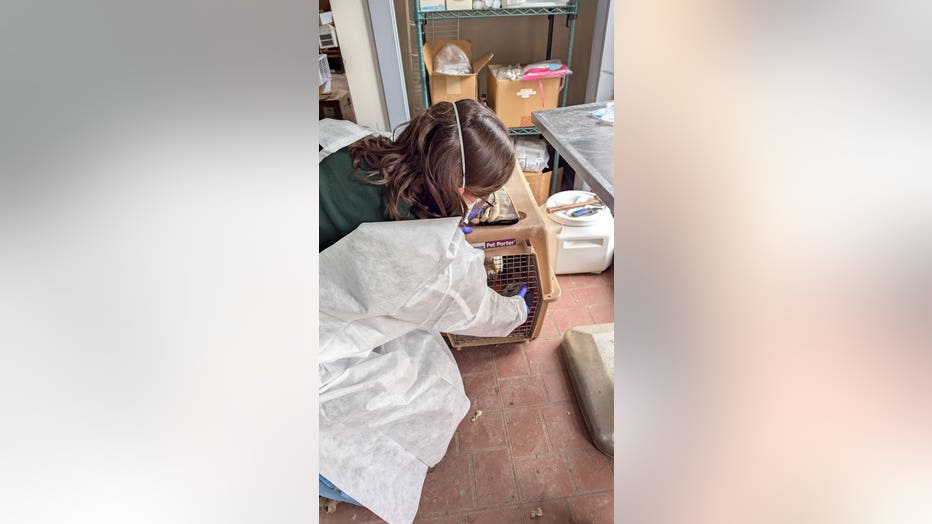Bald eagle found in NW Indiana dies, cause of death revealed
CHICAGO - A bald eagle found in a field this week in northwest Indiana has died from an illness, according to the rehabilitation center that had been caring for the bird.
What we know:
The eagle was admitted to Humane Indiana Wildlife on Monday after being discovered in a field just a half-mile from the center near 400 E in Valparaiso, wildlife officials said in a Facebook post.
When it was first found, the eagle attempted to fly but repeatedly landed face-first and struggled to get back on its feet, officials said.

(Humane Indiana Wildlife/Facebook)
A team from Humane Indiana Wildlife responded to the scene and captured the bird without incident. However, it began having seizure episodes while in the transport crate.
Preliminary tests showed elevated levels of lead toxicity, but officials suspected the eagle’s symptoms were caused by avian influenza rather than lead poisoning.

(Humane Indiana Wildlife/Facebook)
An HPAI test later confirmed the eagle had tested positive for avian flu. Officials noted that the mortality rate for birds of prey infected with HPAI is between 90% and 100%. The rehab center confirmed the eagle died on Tuesday.
What's next:
Samples from the eagle have been sent to the National Veterinary Services Lab to determine which strain of avian influenza it had contracted.
Dig deeper:
HPAI affects wild and domestic bird species, primarily waterfowl, raptors, and domestic poultry. While wild turkeys, shorebirds, and songbirds can also be infected, this is rare. Some birds, such as those that visit backyard feeders, can carry the virus without becoming sick. Raptors can become infected by eating contaminated prey or coming into contact with virus-contaminated surfaces. Wild bird HPAI cases can be tracked on the USDA APHIS website.
Some avian influenza viruses can also infect mammals. As of 2024, HPAI has been detected in mice, red foxes, opossums, skunks, raccoons, bobcats, and other wild mammals. It has also been reported in several domestic species, including cattle, goats, pigs, horses, cats, dogs, and ferrets.
Why you should care:
Once introduced, HPAI can spread quickly through direct contact between birds or from birds to mammals. It can also spread indirectly through manure, equipment, vehicles, egg flats, crates, clothing, shoes, water, and possibly feed. Research is ongoing to determine additional indirect transmission methods. HPAI can survive for long periods in water and at moderate temperatures and can remain indefinitely in frozen conditions.
The Source: Information for this report was provided by wildlife officials from Facebook posts by the Humane Indiana Wildlife Rehabilitation and Education Center.

